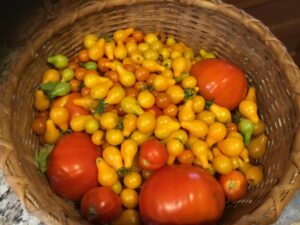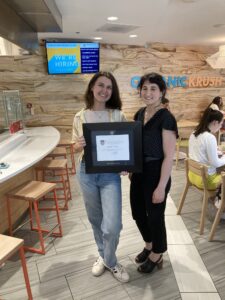 I am really sorry if your Memorial Day plans got rained out. Okay, not really. I adore cool weather, even cool, wet weather. Despite growing up here, I have never loved our summers. I despise humidity and heat.
I am really sorry if your Memorial Day plans got rained out. Okay, not really. I adore cool weather, even cool, wet weather. Despite growing up here, I have never loved our summers. I despise humidity and heat.
You’ll get your miserable summer soon enough. It will be sweltering, in fact. What does it mean to “swelter”? I like the word as much as I dislike its meaning, “to be oppressed by heat.” We tend to use the term as an adjective now, “sweltering,” rather than as a noun or verb. The last is the oldest form, a 15th Century usage noted in the OED entry.
Our word goes back to before the Little Ice Age and even the Medieval Warm Period to the Middle English sweltre, long before electric fans or air-conditioning made places like Virginia and points south habitable for (too many) millions of us.
In the sweltering decades to come I suspect this word will “enjoy” renewed usage. I’m around for 2 more decades, and sometimes I’m thankful it won’t be longer. As for the word, use it wisely; “hot” and “scorching” convey degrees of heat-induced suffering, while “sweltering” just sounds wicked. “Sizzling” has many meanings, but I think of hot dogs on my Weber grill or sun-bathers frying at the beach.
May you find cool shade this summer. I’ll be in Canada for part of it, my sort of climate, thank you. As you heat-lovers burn yourselves up with UV rays, pause a moment to send in useful words or metaphors, by e-mailing me (jessid -at- richmond -dot- edu) or leaving a comment below.
See all of our Metaphors of the Month here and Words of the Week here.
Creative-Commons image courtesy of ChrisGoldNY at Flickr.


